IRGC Commander Threatens To Attack EU States
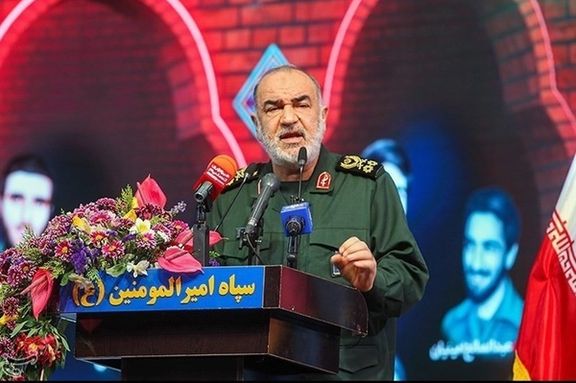
Commander of Iran’s Revolutionary Guard has threatened European countries that the Islamic Republic can target them by increasing the range of its weapons.

Commander of Iran’s Revolutionary Guard has threatened European countries that the Islamic Republic can target them by increasing the range of its weapons.
In remarks in the southern city of Abadan on Monday, the IRGC commander Hossein Salami said Europe is a pioneer in imposing sanctions against the Iranian people, and European countries have become a place for gatherings of “anti-Iranian separatists and fugitives”.
“We have the ability to increase the range of weapons and strike them seriously, but we have not yet done so,” he added.
“We warn them. The lives of Europeans depend on oil and security, and they should be careful and not endanger themselves.”
Elsewhere in his remarks, Salami stated that Westerners have done everything they could against Iran, but they must know that “we have found our way and our will is to create security, but the Europeans should be careful and not abuse our [kind] behavior.”
The threats by Salami come in a situation that EU officials are still hesitant to designate the IRGC as a terrorist group.
EU Foreign Policy Chief Josep Borrell has said the European Union cannot list Iran's IRGC as a terrorist entity until an EU court has determined that they are.
The European Parliament has called on the EU to list the Revolutionary Guards as a terrorist entity, blaming it for the repression of domestic protests and the supply of drones to Russia.
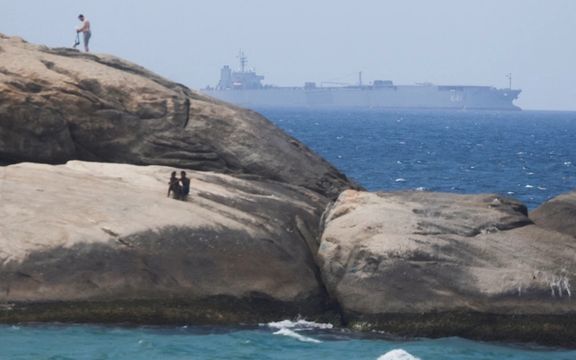
Two Iranian warships docked in Rio de Janeiro on Sunday the government granted permission despite pressure from the United States to bar them.
The IRIS Makran and IRIS Dena warships both arrived on Sunday morning, Rio's port authority said in a statement.
Reuters earlier this month reported that Brazil had bowed to US pressure and declined Iran's request for the vessels to dock in Rio in late January, in a gesture from Brazilian President Luiz Inacio Lula da Silva as he flew to Washington to meet US President Joe Biden.
However, with Lula's trip over, the ships have been allowed to dock. Vice Admiral Carlos Eduardo Horta Arentz, the deputy chief of Brazil's Naval Staff, gave his approval for the ships to dock in Rio between February 26 and March 4.
The presence of the Iranian warships on Brazilian shores continues to irk the United States as it seeks to build closer ties with Lula's administration, which came into office on January 1.
In a February 15 press conference, US Ambassador Elizabeth Bagley urged Brazil not to allow the ships to dock.
"In the past, those ships facilitated illegal trade and terrorist activities, and have also been sanctioned by the United States. Brazil is a sovereign nation, but we firmly believe those ships should not dock anywhere," she said.
Diplomacy with Iran was one of the highlights of Lula's attempts to bolster Brazil's international standing during his previous presidential terms. He traveled to Tehran to meet then-President Mahmoud Ahmadinejad in 2010 as he sought to broker a nuclear deal between Iran and the United States.
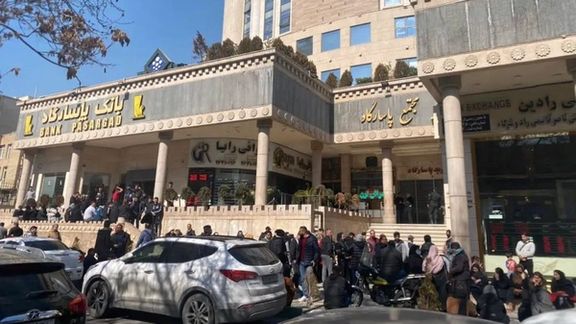
Trading in Tehran markets has largely come to a halt as the currency rial is near its all-time low, Iran International has learned from merchants and traders.
A textile trader told Iran International that “For now we have stopped selling our goods because we have no guarantee we can refill our stocks.” He added that "a lot of merchants have lost money because their payables are in dollars while they have to sell their goods in rials.”
Local media reported that the Central Bank of Iran intervened in the currency market by injecting $700 million in UAE dirhams on Sunday and the rial marginally rose from its all-time low of 600,000 against the US dollar. But such a sizeable intervention has not produced the desired result of stabilizing the rial.
First, the currency rose to 560,000 but after a few hours it dropped again, trading at more than 580,000 to the USD on Monday evening.
Parliament continued a third day of meetings about the currency crisis but there is little the legislature can do, except asking questions from President Ebrahim Raisi’s government. On Saturday, the president’s top economic aide, Mohammad Mokhber told lawmakers, “This is what it is,” rudely dismissing their criticism.
The fact that the reported monetary intervention was conducted using UAE dirhams instead of US dollars might indicate a shortage of greenbacks in the central bank.
The same grim news about a halt in trading came from the goldsmiths market in Tehran, where the fast-fluctuating currency rates have forced retailers to hold on to their gold and jewelry.
A currency dealer told Iran International that curbside trading has become highly risky as plainclothes security agents are everywhere in areas where usually people buy and sell foreign currencies.
Trading has also decreased in the food wholesalers’ market where one trader said goods such as sugar, oil and rice that can be stored have been shipped to warehouses, not to be sold until there is clarity with the value of the rial.
Pundits urged the government to tell the people what plans it has to tackle the crisis, but officials seemed bewildered and confused. The speaker of parliament Mohammad Bagher Ghalibaf (Qalibaf) was quick on Monday to claim that his fiefdom had predicted the currency crisis more than a month before and had warned the government. Others simply urged the government to “do something.”
Tehran’s Friday Prayer Imam, Kazem Sedighi, told the people to pray to fix the country’s problems. “We are in an economic war,” he said, just as the pioneers in Islam had to fight the unbelievers, this is also a holy war.
Foreign Minister Hossein Amir-Abdollahian was suddenly quoted as saying that during his visit to Iraq last week, he was told that the United States is open to resume nuclear negotiations. It was not clear why he had not disclosed the news three days earlier, except if suspicions that he tried to boost the rial was the real reason behind the belated revelation.
Some media outlets and commentators are speculating about changes in the government lineup, as many have been insisting for a long time that Raisi’s ministers are not up to the job.
One hardliner pundit, Mohammad Sadegh Koushki was quoted as saying that “If Mr. Raisi had the same information he has today prior to the presidential elections, he would have never become a candidate. Most presidential candidates [in Iran] have no idea about the magnitude of the job.”
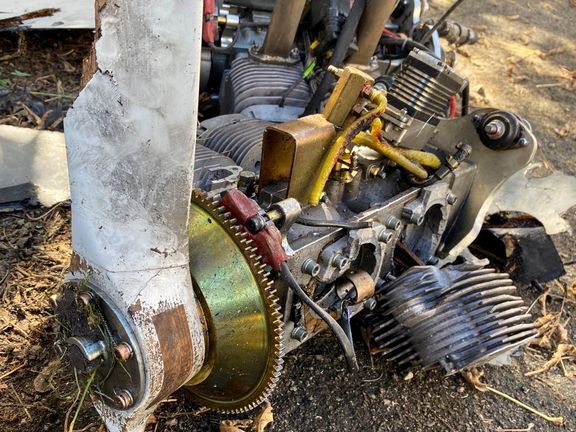
Russia employed a new tactic in its use of Iranian drones to kill more people in Ukraine on Monday by planning a double-attack, killing two rescue workers.
After some media speculations that Russia might have used up its supply of Iranian Shahed-136 kamikaze drones, it sent swarms of the Unmanned Aerial Vehicles (UAVs) into different parts of Ukraine.
As the week began early Monday morning, air-raid sirens sounded in most of the country, but in the western city of Khmelnytskiy two rescue workers who had responded to a drone explosion were killed when a second UAV hit the same location.
Iran has been supplying Shahed drones to Russia since mid-2022, and Moscow began using dozens of the UAVs in coordinated attacks together with long-range missiles in early October. So far, it is believed that hundreds of the Iranian drones have been used.
The total number of drones used in the Monday attacks is not clear, but the head of Kyiv’s military administration, Serhiy Popko said nine drones were shot down over the capital. Ukraine’s General Staff said its forces destroyed 11 out of 14 drones overnight.
The United States and its European allies have warned of closer military cooperation between Russia and Iran, demanding that Tehran should end its military involvement in Ukraine before there would be any chance of resuming talks over Iran’s nuclear program.
Iran first denied supplying Russia with weapons but later admitted that it had sent some drones before Russia’s invasion of Ukraine began.
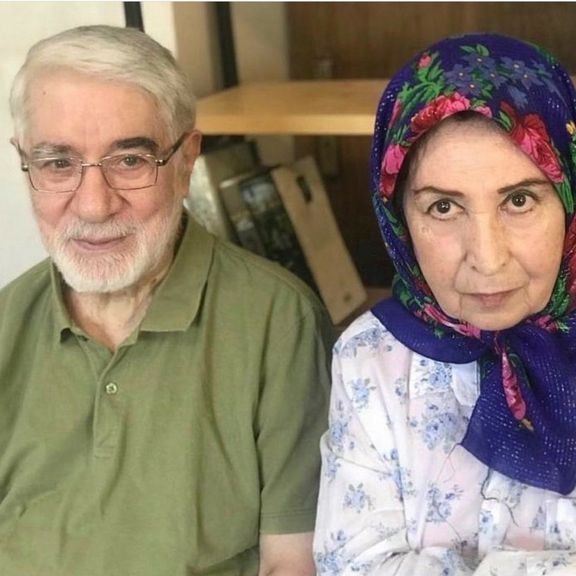
Sources close to Iranian opposition figure Mirhossein Mousavi say the regime has imposed more restrictions on him after he issued a statement in support of popular protests.
Kalameh website, close to Mousavi reported that his house arrest became more restricted following the publication of his recent statement in support of the “Women, Life, Freedom Movement”, and his call for a referendum to establish a new political system in Iran.
The website did not mention the details of the new restrictions but added that it will publish more information soon.
Ardeshir Amir-Arjamand, Mousavi's advisor, who resides abroad, also confirmed in a tweet the tightening of house arrest restrictions on Mousavi and his wife Zahra Rahnavard.
Mir-Hossein Mousavi, who was a presidential candidate in the 2009 disputed election and has been under house arrest since 2011, said in a statement earlier this month that Iran needs “fundamental change” based on “Woman, Life, Freedom” and constitutional change.
Referring to government violence against protesters, he said the rulers of the Islamic Republic are not willing “to take the smallest step to meet the demands of the people.”
Mousavi’s statement seemed to reject reform as a viable alternative, urging fundamental change, a new constitution, and a constitutional assembly.
Zahra Rahnavard also previously described the government's violence against women as "extreme cruelty" that has not been seen anywhere “even in the dictatorships of the Middle Ages.”
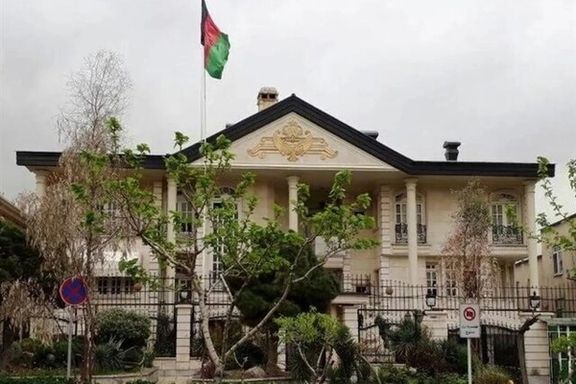
The National Resistance Front of Afghanistan has slammed Iran’s move in ceding the Afghan embassy in Tehran to the Taliban.
In a statement published by the spokesperson of National Resistance Front, Sibghatullah Ahmadi, the group said the action was taken despite the Front’s concerns about its “adverse consequences”.
“Nonetheless, [Iran] allowed the representatives of the illegitimate and the terrorist group of Taliban to enter the diplomatic mission of Afghanistan.”
It also warned that the political presence of the Taliban in Iran, with its “dark history” is “perilous”, especially for the millions of refugees who have sought protection in Iran.
“Handing over the diplomatic mission of Afghanistan in Iran to a group that is a murderer of the people of Afghanistan…is dubious and contains an unpleasant message to the people of Afghanistan and other countries.”
The statement expressed regret about the embassy takeover by a “criminal group”, adding that this situation will not last long.
Iran has good relations with the Taliban and also ties to the resistance front that comprises more non-Pashtun, Persian speaking Afghans.
Afghanistan’s embassy in Tehran was “formally” handed over to the Taliban on Sunday afternoon, according to an Afghan diplomat in Iran.
Sources say the Taliban has appointed Fazl Mohammad Haqqani, the first secretary of the former ambassador of Afghanistan in Iran, as the group’s charge d’affaires in Tehran.
Iran is the third country after Pakistan and Russia that handed the Afghan embassy to the Taliban.